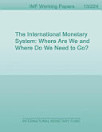Testimonials of Tumultuous Times
About this ebook
Spread out over five years, these speeches mark a response to the multiple shocks that have impacted the Indian economy since 2020: the COVID-19 pandemic, the Russia-Ukraine war, and the aggressive monetary tightening by advanced economy central banks. It illustrates how India has positioned itself as a leader in many international endeavours and offers a futuristic assessment of two major developments with the potential to reshape humanity: climate change and the advent of the digital revolution and new technologies. The book thus enables readers to explore the complexities of monetary policy in a real-world context, understanding the rationale behind key decisions that have shaped India’s economic trajectory.
Essential reading for postgraduate courses on the Indian economy and monetary policy, this book will be useful to students, economists, policymakers, financial market participants, and historians.
About the author
Michael Debabrata Patra is an economist and has been a career central banker for four decades. He has also worked in the International Monetary Fund as Senior Advisor during 2008-12. As Deputy Governor of the RBI during 2020–2025, he has been responsible for monetary policy, financial markets, financial stability, economic and policy research, statistics and information management, international relations and corporate strategy, besides overall coordination. He is also a founder member of the monetary policy committee of the RBI, which is entrusted with monetary policy decision-making in India. Educated at Utkal University, Bhubaneshwar, the Indian Institute of Technology, Mumbai, and Harvard University, USA, he has served in leadership roles in a number of organisations, including chairman of the board of directors of the Deposit Insurance and Credit Guarantee Corporation and member of the boards of directors of the National Bank for Agriculture and Rural Development and the Exim Bank. He has also served in board-level positions at a number of academic institutions, such as the Indira Gandhi Institute of Development Research, Mumbai; the Centre for Advanced Financial Research and Learning, Mumbai; the National Institute of Bank Management, Pune; the Indian Institute of Bank Management (chairman of the governing board), Guwahati; and the Bankers Institute of Rural Development, Lucknow.




